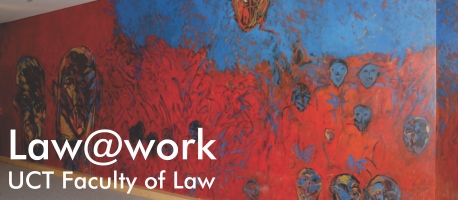
In response to our escalating planetary crises, environmental conflicts have become commonplace, posing a significant threat to global security, stability and wellbeing.
Effectively addressing the highly complex, and dynamic nature of environmental conflicts necessitates a focused, proactive and collaborative response to solution-building and resolution for which traditional legal and ADR interventions are inadequate for the task.
Environmental collaboration and conflict resolution (ECCR) is a growing field that seeks to resolve environmental conflicts by enabling a customised approach that optimises mutually beneficial and enduring solutions.
ECCR offers an expansive range of conflict management options, techniques, and processes to prevent disagreements from devolving into community tension, violence, and protracted litigation. As such, developing ECCR skills has become a critical risk management tool for both the private and public sectors.
Sign up for a fifteen-hour course in which we will study the methodologies involved in this field.
When and where?
4 to 8 August 2025, 9:00 to 12:00 SAST POSTPONED UNTIL FURTHER NOTICE
This course will be held remotely, most likely on Zoom - exact details will be sent to registered participants a few days before the course.
Course outline
The purpose of this course is to empower participants to inspire, lead and transform how their organisation plans and implements interventions to avoid or reduce environmental conflict.
The course will equip participants with the knowledge and skills to address a growing set of challenges at the intersection of rapid ecological deterioration, natural resource management, shifting societal interests and values, and the rise in and response to environmental activism and conflict.
Through this immersive learning process, participants will gain fresh insights, and learn practical skills to effect risk-reduction strategies for community peacebuilding and conflict resolution.
Case scenario group work throughout this highly interactive course will allow participants to test their knowledge as they progress. Through interactive exercises participants will gain the confidence to address confrontations constructively, find win-win solutions, and facilitate a more collaborative and productive stakeholder environment.
Examples from around the world of ECCR excellence, as well as controversy, will be examined, to enrich the learning experience and assist the participant to identify both opportunities and obstacles within their own organisations.
Participants will explore ECCR principles, standards, guidelines and methodologies, including joint fact finding (JFF), negotiation, facilitation, conciliation and mediation, and convening/conflict assessment. Participants will learn about the elements and steps of an effective ECCR process, pre-conflict diversionary tactics, and how and when to deploy these.
During the course, participants will consider the traditional Southern African practices of indaba and lekgotla as tried and tested processes for building positive, mutually beneficial community relationships.
Outcomes
On completion of the course, participants will be able to:
- Demonstrate a sound understanding of the key constituents and techniques of ECCR and discern how and when to implement these for optimal peacebuilding results.
- Analyse and define the causes of environmental conflict, understand the use of emotional intelligence in defusing conflict, and recognise the diversity of approaches to environmental threats and conflict.
- Design appropriate and effective cooperation, collaboration and conflict resolution processes amongst diverse groups and teams.
- Generate options, reach agreement, and document decisions to foster long-term commitments.
- Understand behaviours that build trust, cooperation, and long-term value for all.
- Participate effectively in collaborative multi-party processes.
- Distinguish between different preconditions, as well as different types of interventions, and each intervention’s impact.
- Align environmental conflict situations with appropriate response strategies.
- Practice skills in resolving conflict, and confrontation, and overcoming deadlocks and aggression.
- Identify the best strategies to apply and necessary leadership communication skills to address and resolve conflict.
- Contribute to instituting a conflict transformation culture in the participants’ organisations, which drive change, action, and learning in relation to conflict prevention and conflict management.
Who will benefit from this course?
Public and private sector middle to senior management who engage with diverse stakeholders regarding any aspect of environmental management.
Presenter
Jennifer Kamerman is an environmental lawyer who holds a B.A. LLB. LLM (Environmental Law) from the University of Cape Town.
After graduating with an LLB, Jennifer spent 17 years in the retail industry, gaining broad-based experience in commercial law, business organisation, leadership, management, and governance, at a senior level.
Since 2009, Jennifer has provided legal expertise to those seeking to effectively address threats to their environment. Jennifer is passionate about creating a platform for meaningful participation in environmental decision-making for communities who lack the know-how to navigate environmental law, policy, and regulation.
Further, Jennifer expresses her commitment to ongoing education by researching, writing, and teaching professional skills development courses, in various aspects of environmental law, ESG, stakeholder engagement, and sustainable development.
In addition, Jennifer advises and trains corporates on the integration of sustainability into their business practices and assists with their stakeholder engagement strategies and processes.
Jennifer is an internationally accredited mediator who is experienced in facilitating long-term solution-building in multi-stakeholder environmental disputes.
Extramurally, Jennifer is actively involved in several environmental justice, social transformation, and civic initiatives.
How much?
R7,200 per person.
Certificate
A digital certificate of attendance from UCT will be issued to those who attend the full course.
No certificate will be issued without full payment having been received. Please allow up to three weeks after the end of the course for certificates to be processed.
How to sign up
Complete and submit the registration form. You will then be given the payment information. Please note that your registration is not complete until payment has been made.
One or two days before the course, we will send you the Zoom link. You will need to register and use a password to enter the virtual classroom.
Registrations close three days before the course starts.
Download the brochure.
You may also be interested in:
- Stakeholder engagement for competitive advantage
- Environmental law primer: What every business leader should know
- The Climate Change Act: Implications and opportunities for business in South Africa
